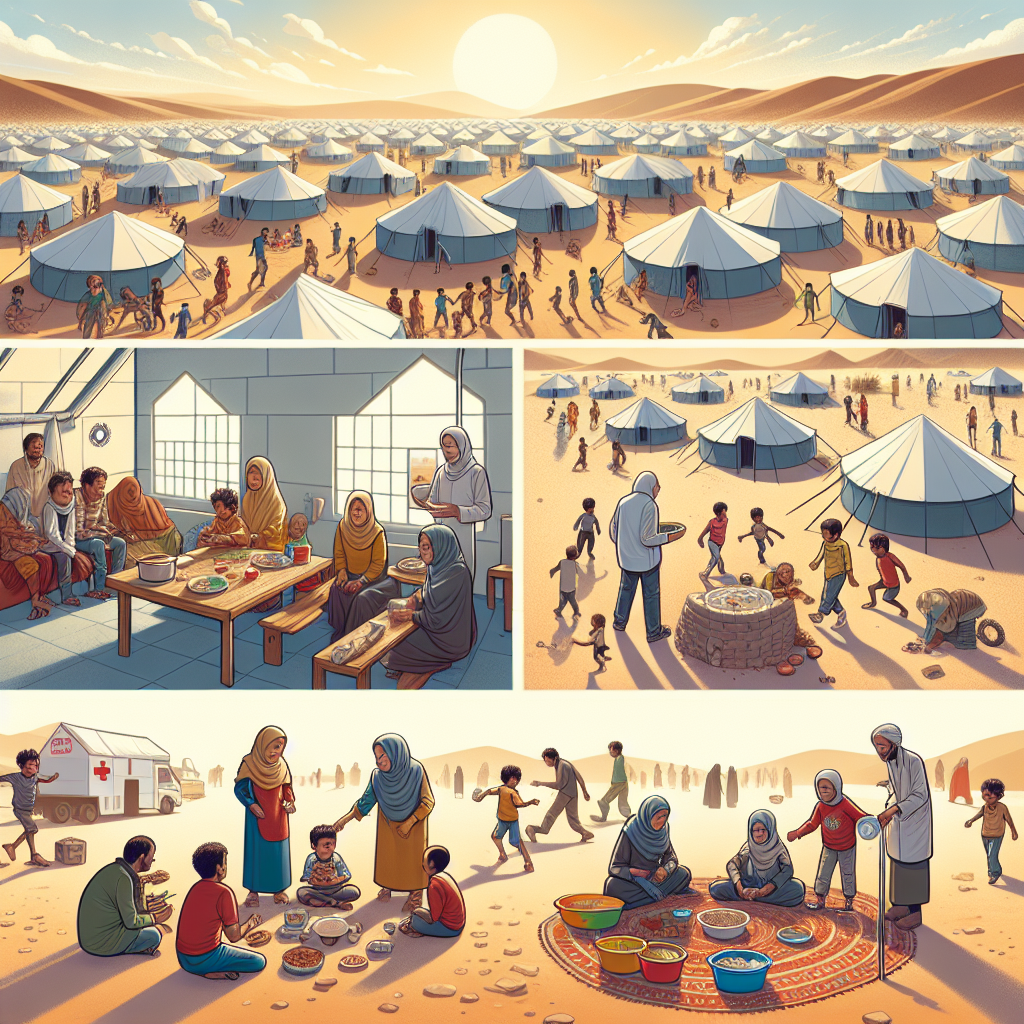Gaza aid delivery ‘grinding to a halt’ alongside rampant insecurity
Humanitarian Coordinator for the Occupied Palestinian Territory Muhannad Hadi said that the survival of two million people now “hangs in the balance”.

The delivery of life-saving aid across Gaza “is grinding to a halt” amid a surge in armed looting targeting humanitarian convoys, the senior aid official in the region said on Thursday.
Humanitarian Coordinator for the Occupied Palestinian Territory Muhannad Hadi said that the survival of two million people now “hangs in the balance”.
Bakeries are closing rapidly for lack of flour or fuel to operate power generators and for over six weeks, the Israeli authorities have preventing all commercial imports from entering the Strip.
Looting surge
“At the same time, a surge in armed looting targeting humanitarian convoys and truck drivers, fuelled by the breakdown in public order and safety, has further crippled our ability to collect supplies from border areas and deliver critical aid,” he said.
Pushed to the brink, civilians lack access to essential support they desperately need, while so far this year UN trucks have been looted 75 times – including 15 such attacks since 4 November alone – while looters have broken into UN facilities on 34 occasions.
“Just last week, one driver was shot in the head and hospitalized, along with another truck driver”, Mr. Hadi recounted. “This Saturday, no less than 98 trucks were looted in a single attack with trucks being damaged or stolen.”
He added that although agencies remain committed to staying and delivering, “our ability to do so is increasingly being called into question.”
It is essential to reestablish the rule of law to allow safe and unimpeded access, he added.
Violence in the West Bank
In the occupied West Bank, UN humanitarians alongside the Palestinian Authority and other partners are assessing the needs of Palestinians affected by a nearly two-day operation conducted by Israeli forces in Jenin and Jenin refugee camp.
Several homes and key infrastructure, including water and sewage lines, are said to have been damaged while power has been reportedly cut off in some areas, according to media reports.
As in the Gaza Strip, children in the West Bank have also borne the brunt of fighting since the onset of the crisis last October.
“Our humanitarian colleagues report that since 7 October of last year, four Palestinian children have been killed every week on average in the West Bank – marking a three-fold increase compared to the first nine months of 2023,” UN Spokesperson Stéphane Dujarric told journalists at the regular press briefing in New York.
“Meanwhile, violence by settlers continues to displace Palestinian children in the West Bank,” he added.
Of the more than 1,700 Palestinian displaced by settler violence, intimidation and harassment in Bedouin communities and herding communities, around half were children.
Hunger and displacement in Lebanon
In the wider Middle East region, UN food security and relief agencies – the World Food Programme (WFP) and the Food and Agriculture Organization (FAO) – warned that hunger in Lebanon is set to worsen.
The ongoing hostilities have severely disrupted supply chains, and deepened food insecurity, impacting more than 1.2 million people.
“With nearly a quarter of the Lebanese population already suffering from inadequate food consumption, the situation is set to deteriorate further as food prices remain high,” Mr. Dujarric said.
The agencies for their part, have delivered food since September to more than 65,000 people, mostly in the south and the Baalbek Governorates, he added, reporting fresh displacement amid renewed evacuation orders and airstrikes on Thursday.
More than 880,000 people have been displaced within the country, including more than 20,000 migrants who have been forced to flee both their homes and their workplaces, according to the UN International Organization for Migration (IOM).
“It is important to reiterate that civilians must be protected, regardless of whether they choose to stay or whether they choose to leave,” Mr. Dujarric added.
Visit UN News for more.
- READ MORE ON:
- Gaza










